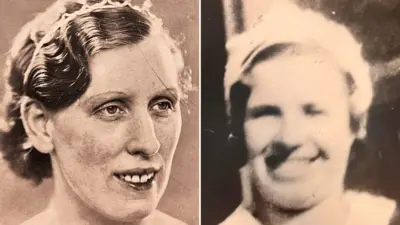We've updated our Privacy and Cookies Policy
We've made some important changes to our Privacy and Cookies Policy and we want you to know what this means for you and your data.
World War II veteran from Gloucester awarded Arctic Medal
An 89-year-old Gloucestershire man has been honoured for his efforts in the World War II Arctic convoys.
Canon Bill Brassell from Gloucester served in the Royal Navy in the 1940s, and battled storms, bombers and U-boats to ferry war supplies to Russia.
He has been awarded the Arctic Star medal for the maritime missions, which Winston Churchill said were the most dangerous of the war.
"I'm very, very grateful to receive this," he told the ┤¾¤¾┤½├¢.
"It's only 70 years I suppose, and at last it's happened. Not just because it's a nice thing for me, but because of all those who served with me and they paid the supreme sacrifice.
"Of all the bits that one served during the war, this was the effort that was made by so many.
"I take it [medal] very much in memory of all those who didn't come back, all my shipmates, and that's something that I will very much treasure".
Medal campaign success
The medal presentation took place at the headquarters of Gloucester-based A Company 6 Rifles.
In 2005, an Arctic badge was awarded to the veterans of the convoys but they felt that it did not go far enough.
They lobbied the government for a specific medal to recognise the service of those involved in the mission.
The Arctic Star medal was created this year.
"This is a medal that we've introduced to honour those people who served on the Arctic convoys in World War II," said Conservative MP Mark Francois, the minister of state for defence personnel, welfare and veterans.
"I'm privileged to present this to Canon Brassell."
The Arctic convoys brought crucial supplies and weapons to Russia, to help fight off Hitler's armies.
The icy voyages claimed over 3,000 lives and Winston Churchill described them as the worst journey in the world.
The supply ships were under constant threat of attack by German U-boats and aircraft and also had to negotiate severe cold, storms, and ice floes.
The voyages began in 1941 and by May 1945, the Arctic route had claimed 104 merchant ships and 16 military vessels.
Top Stories
More to explore
Most read
Content is not available








